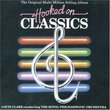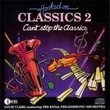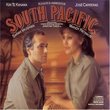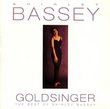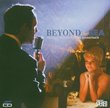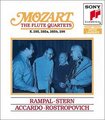| All Artists: Pyotr Il'yich Tchaikovsky, Mstislav Rostropovich, Berlin Philharmonic Orchestra Title: Tschaikovsky: Ballet Suites / Rostropovich, Berlin Philharmonic Orchestra Members Wishing: 1 Total Copies: 0 Label: Deutsche Grammophon Release Date: 3/11/1997 Genre: Classical Styles: Forms & Genres, Suites, Historical Periods, Romantic (c.1820-1910) Number of Discs: 1 SwapaCD Credits: 1 UPC: 028944972627 |
Search - Pyotr Il'yich Tchaikovsky, Mstislav Rostropovich, Berlin Philharmonic Orchestra :: Tschaikovsky: Ballet Suites / Rostropovich, Berlin Philharmonic Orchestra
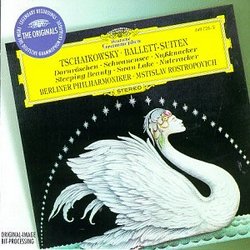 | Pyotr Il'yich Tchaikovsky, Mstislav Rostropovich, Berlin Philharmonic Orchestra Tschaikovsky: Ballet Suites / Rostropovich, Berlin Philharmonic Orchestra Genre: Classical
Shortly after recording these three ballet suites in 1978, Mstislav Rostropovich likened conducting the Berlin Philharmonic to driving a locomotive. You get on, and you go where it takes you, he said--but in this case, the... more » |
Larger Image |
CD DetailsSynopsis
Amazon.com essential recording Shortly after recording these three ballet suites in 1978, Mstislav Rostropovich likened conducting the Berlin Philharmonic to driving a locomotive. You get on, and you go where it takes you, he said--but in this case, the orchestra went where he wanted it to go. The playing is magnificent, but it is the characterization, the things Rostropovich gets the players to do that they wouldn't otherwise have done, that makes these accounts so memorable. As you listen, you are transported to a different world, for no conductor understands Tchaikovsky's soul better than Rostropovich. The delicacy is amazing, the power overwhelming; the analog recording captures it all in outstanding fashion. --Ted Libbey Similarly Requested CDs
|
CD ReviewsOutstanding Tchaikovsky disc Marc Haegeman | Gent, Belgium | 10/23/2003 (5 out of 5 stars) "Outstanding versions of Tchaikovsky's three popular ballet suites. The Berlin Philharmonic is in glowing form and Mstislav Rostropovich on the rostrum sounds inspired as none else. Warmly and dynamically recorded, with plenty of orchestral detail, this thrilling disc may stand as a criterion from the analogue era. If you only need the suites, or if you think this music no longer holds any surprises for you, this is the CD to go for. Highly recommended." Powerful Interpretations A. Michaelson | Bay Area, CA | 01/11/2002 (5 out of 5 stars) "Rostropovich came into prominance as one of the premier cellists in the world. Who would ever have thought that he would also make an incredible conductor. It's quite common nowadays to see a pianist move from the bench to the podium, but it's a rare spectacle to see a cellist become maestro. In this case, however, it worked wonderfully. These three recordings of Tchaikovsky's three most famous ballet suites are incomparable. Rostropovich is somehow able to get the Berliners to play like there's no tomorrow. The emotional depth that the BPO elicits from their instruments is incomparable. If I had to choose a highlight it would have to be the Sleeping Beauty Suite, but the decision is very difficult to make. Just listen to this disc. The pieces are essential to any classical collection so may as well get this version, which is quite simply the very best available." Out of balance dynamics - not recommended Frank Oosterom | Netherlands | 05/14/2006 (2 out of 5 stars) "Through recommendations from several guides on classical music, I got to listen to this record, and of course the music itself is glorious, truely delightful and all of that. As long as you stay focused on the slow parts, you have no trouble appreciating this record. The problem starts when the more vigorous parts set in. Then it is revealed that the nice moderato slows are combined with much too fastly played quick tempi. The same can be said about the 3 last symphonies by the same composer, conducted by Karajan in the Double Decca version.
I didn't expect this to happen with Rostropovich here, because of the good reviews, but also because of his Russian roots. I would have thought he was well able to convey the true Russian feeling in this work. Sadly enough, it really just is a very bad-balanced piece of playing, which is not to be accounted on the BPO, but as Haitink once said: "There are no bad orchestras, just bad conductors." I'm afraid this here is the case with this recording. Rostropovich is likely to be better off with Cello concertos (playing or conducting - for a fine example check out his first recording with Korean prodigy Han-Na Chang). For a better choice of Tsjaikovsky's masterpieces, I'd go for Previn and the LSO (EMI) or Karajan and the VPO (in his younger years on Decca). You'd be much more satisfied." |

 Track Listings (19) - Disc #1
Track Listings (19) - Disc #1